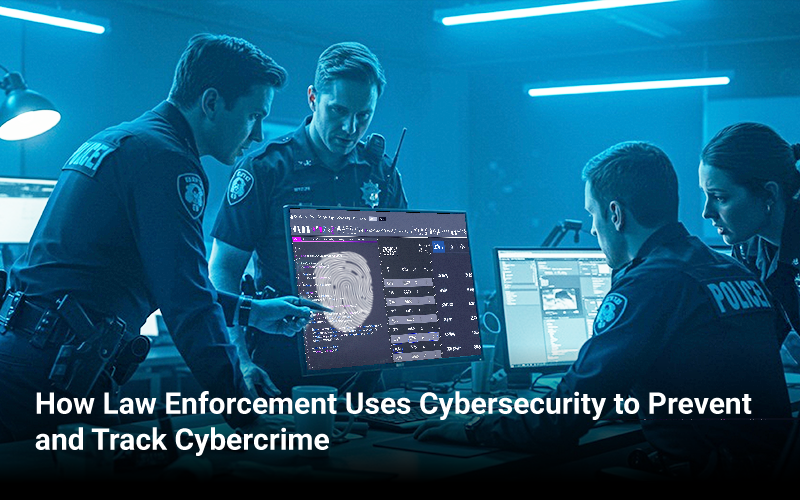Masters in Computer Science – Global Opportunities to Ever-Evolving Fields
In recent years, a prominent rise has been noticed in students pursuing a Master’s in Computer Science, whether immediately after their undergraduate studies or after gaining mid-level professional experience. This growing trend drives the program’s perfect synchronization with current industry demands, a computational mindset, and the preparation of professionals for global opportunities in the ever-evolving tech landscape.
Today, as we take a closer look at the trending fields within computer science and the valuable skillsets it offers, from technical expertise and practical knowledge to essential soft skills, all of which can help your secure roles in industries with high career growth and competitive salaries.
Why Opt Computer Science?
At the core of modern innovation lies computer science, combining theory, algorithms, hardware, software, and information processing. Fields like computational science, data systems, networks, and visualization, which deeply connect with the economic sector, are dealt with in computer science. As technology drives nearly every industry, studying computer science equips students with important programming, software development, and problem-solving skills. Operating a successful business without computer science expertise is nearly impossible today, making it an indispensable field of study.
Technical IT Skills in Computer Science
- Programming Languages (e.g., Python, Java, C++, JavaScript): Proficiency in programming languages forms the core of computer science. Knowing code languages like Python, Java, and JavaScript helps developers create applications or bridge gaps while understanding the end-to-end connectivity of the organizational processes.
- Cybersecurity Fundamentals: In an increasingly digital world, understanding cybersecurity basics is crucial for protecting data, networks, and systems from security breaches and attacks.
- Robotics: Robotics integrates and creates intelligent systems by combining software, artificial intelligence, and hardware engineering. The foundational algorithms and programming languages enable robots to perceive, plan, and act autonomously.
- Machine Learning: As data-driven technologies rise, machine learning has developed systems that can make decisions and predictions based on data analysis.
- Blockchain: It enables secure, decentralized data management through a distributed ledger system. It employs cryptographic techniques to ensure tamper-proof records and their transmission.
- Cloud Computing: Cloud servers like AWS and Google Cloud are used to build applications online with more security. Familiarity with platforms like AWS, Azure, and Google Cloud allows developers to deploy and manage applications in the cloud seamlessly.
- Data Structures: Learning data structure enables efficient problem-solving to organize data for optimized performance with scalable and reliable software. Working on cross-domains technologies like web development or mobile development, knowledge of data structures ensures online and offline data management accuracy.
- Algorithm Design: Algorithm designs ensure that systems and applications run smoothly, making them reliable and efficient software solutions across various domains.
- Software Development: Familiarity with Agile methodologies and DevOps practices helps build software applications collaboratively with quicker releases and high quality throughout the lifecycle.
CYBERSECURITY SKILLS IN COMPUTER SCIENCE
1. Network Security & Administration (CND)
2. Ethical Hacking (CEH)
3. Operating Systems
It’s important to secure – Windows, Linux, and macOS, along with virtualized environments, against vulnerabilities and attacks to ensure a targetless cybersafe network.
4. Secure Programming (CASE)
Secure coding techniques and thorough code reviews are vital for preventing security flaws and ensuring the development of secure applications during the complete cycle while learning strategies, guidelines, and practices.
These technical skills are critical for staying competitive in the fast-paced world of technology and preparing for successful careers in the computer science field.
The need for competent experts in the demanding field of computer science increases with the technological advancement. Pursuing a Master of Science in Computer Science enables you to deepen your understanding of complex computing concepts, preparing you for high-level technical challenges. ECCU‘s MCS program offers the perfect blend of advanced technical training, practical experience, and industry-recognized certifications, including CND and CEH. The program’s flexible online format allows you to learn from anywhere around the globe while gaining hands-on experience through virtual labs and a capstone project.
With a curriculum aligned with the latest industry trends and the opportunity to earn up to four EC-Council certifications, ECCU’s MCS degree prepares graduates to tackle today’s cyber threats with confidence and skill. Whether you are looking to advance your current career or pivot into a demanding field, consult with the ECCU’s enrollment advisor to map your career path at [email protected]







